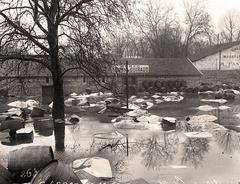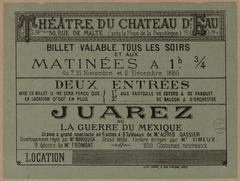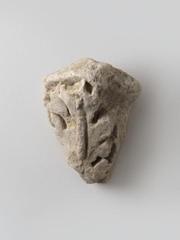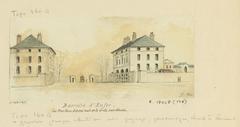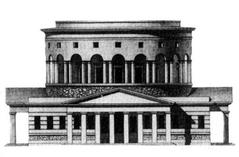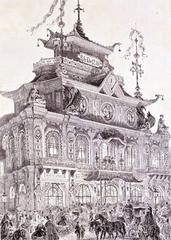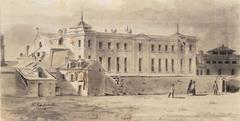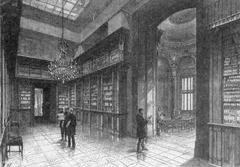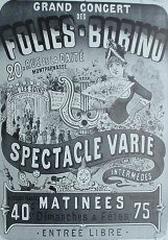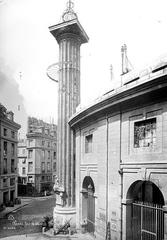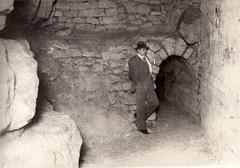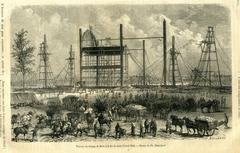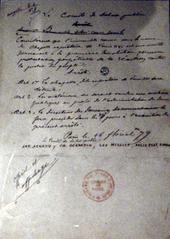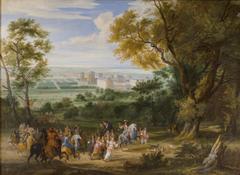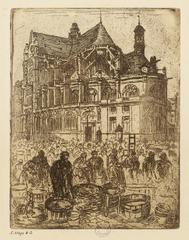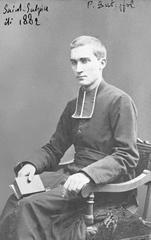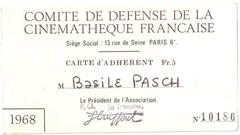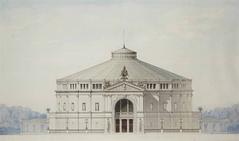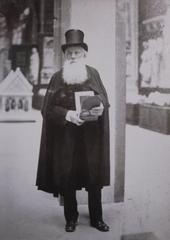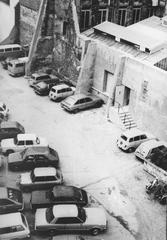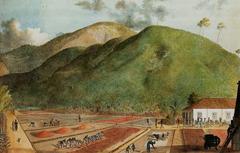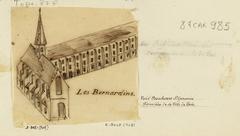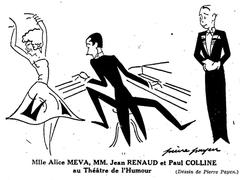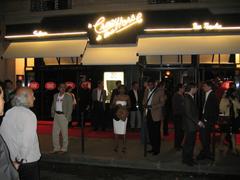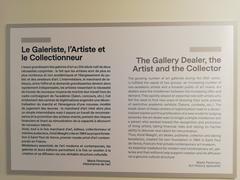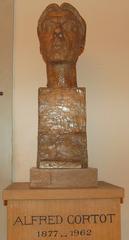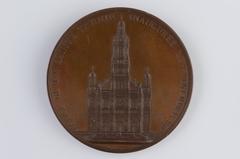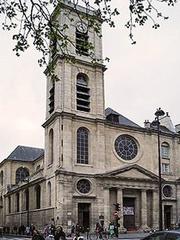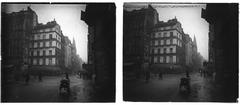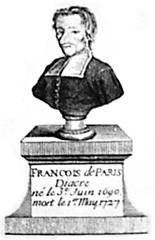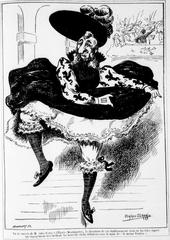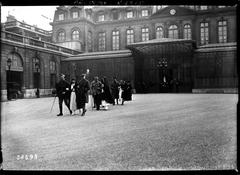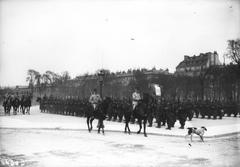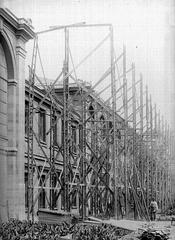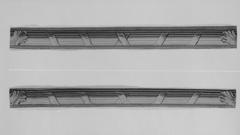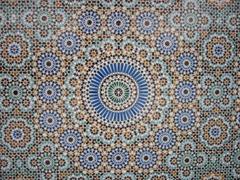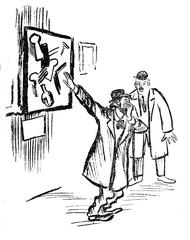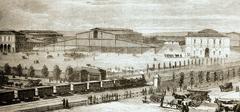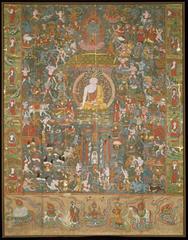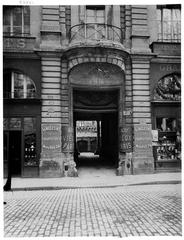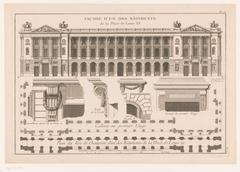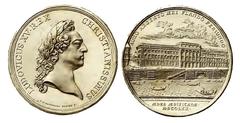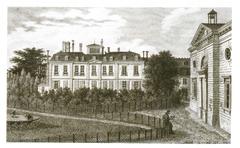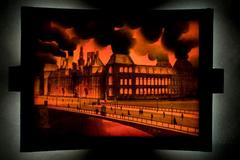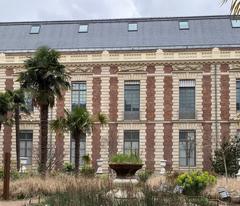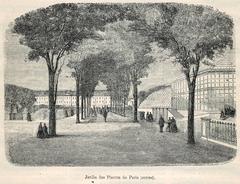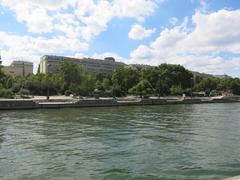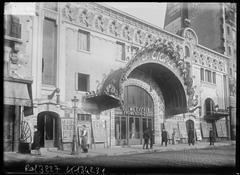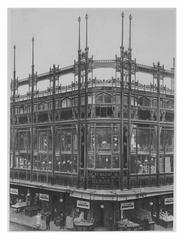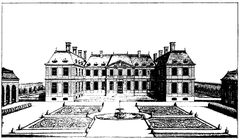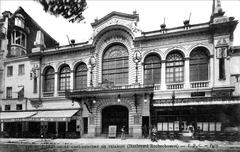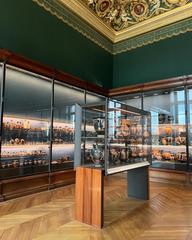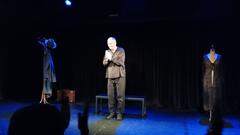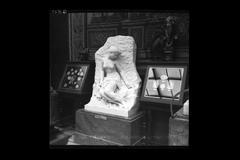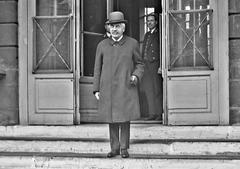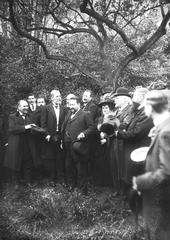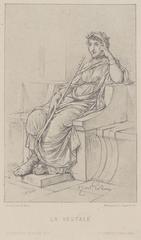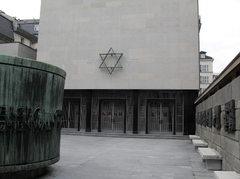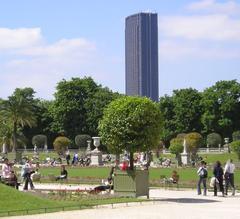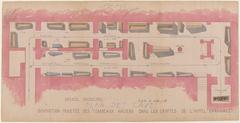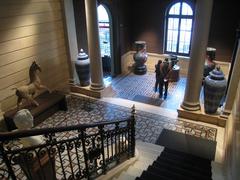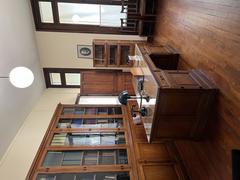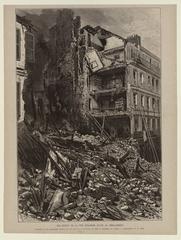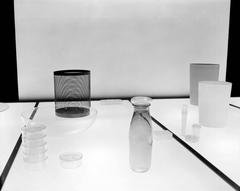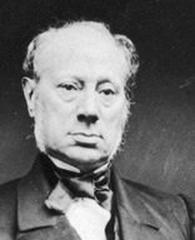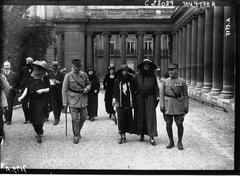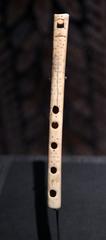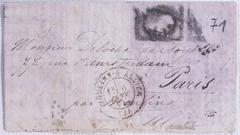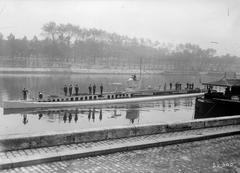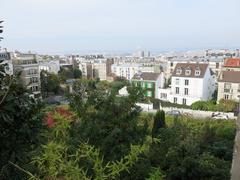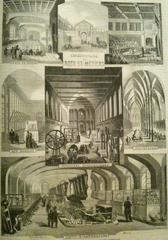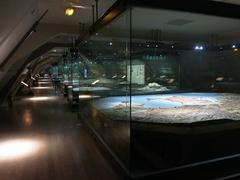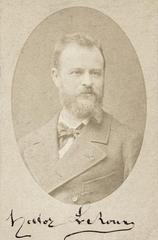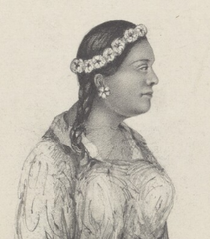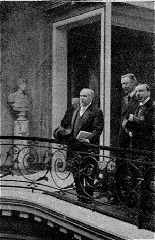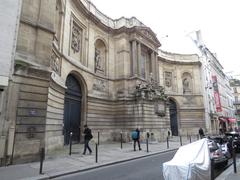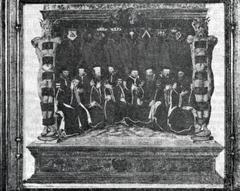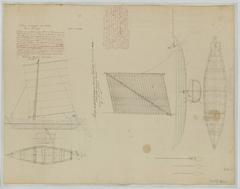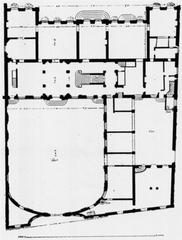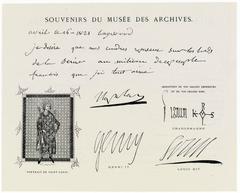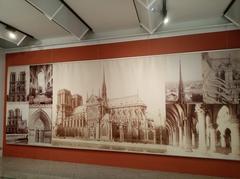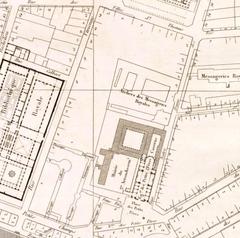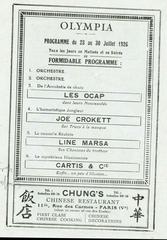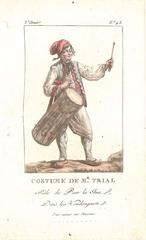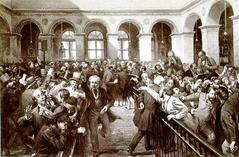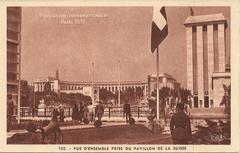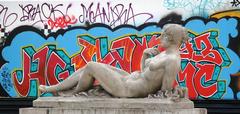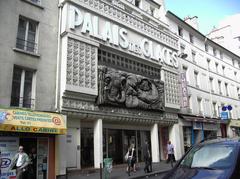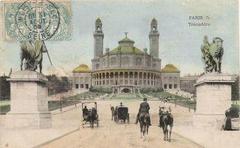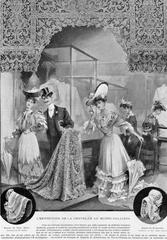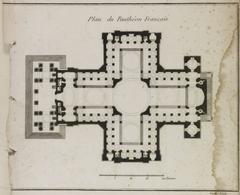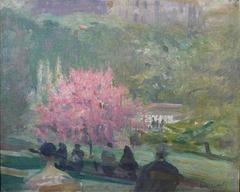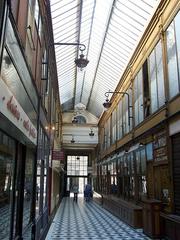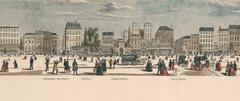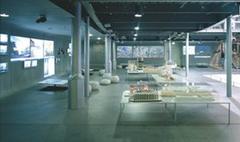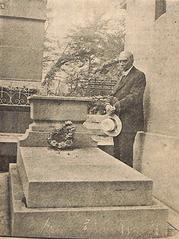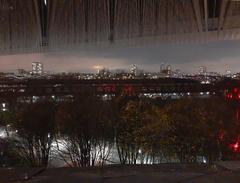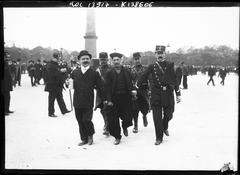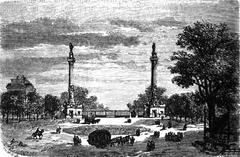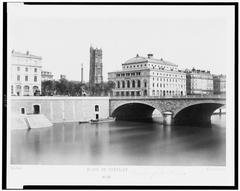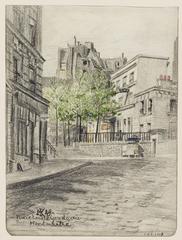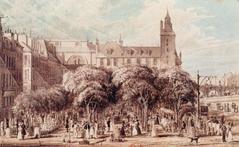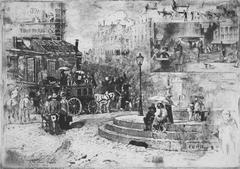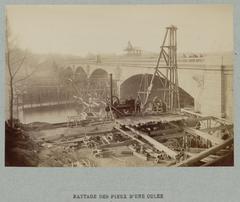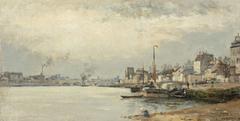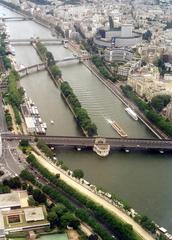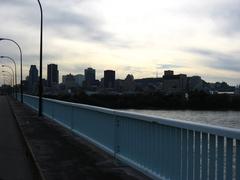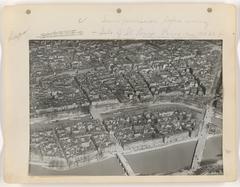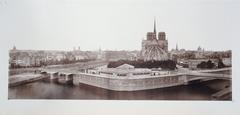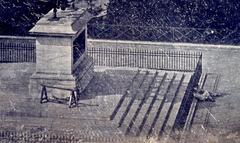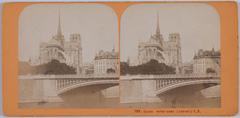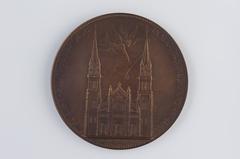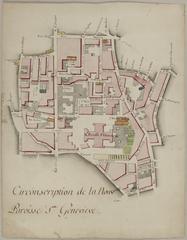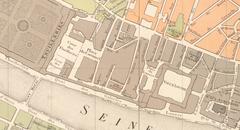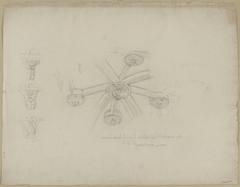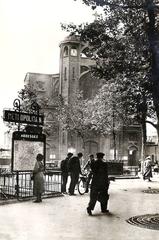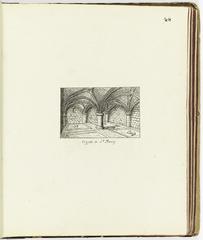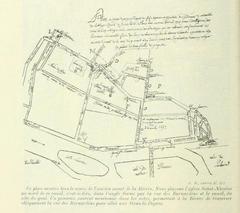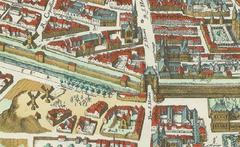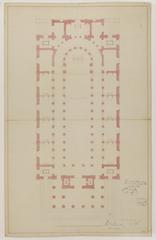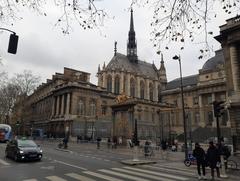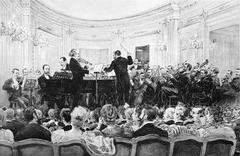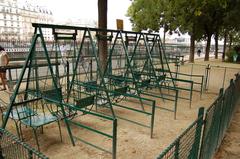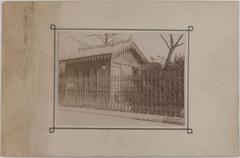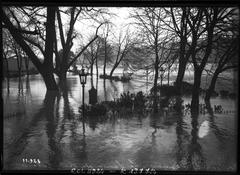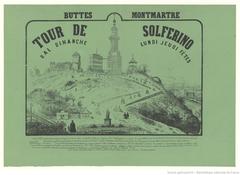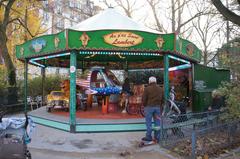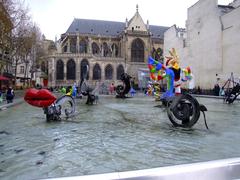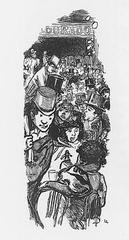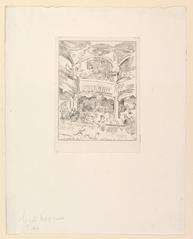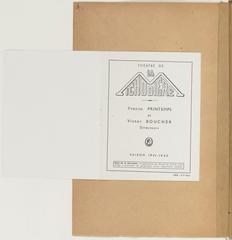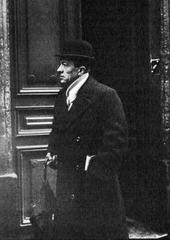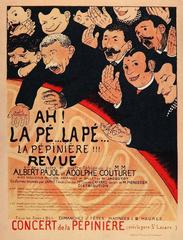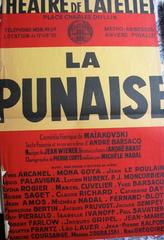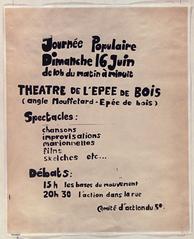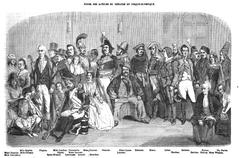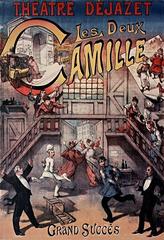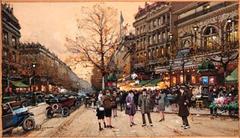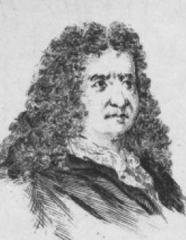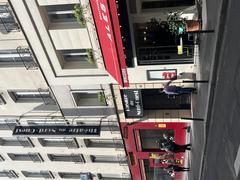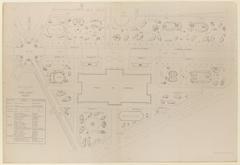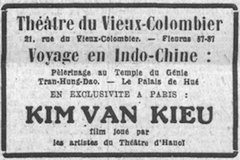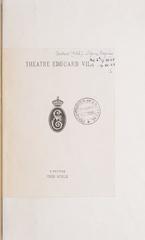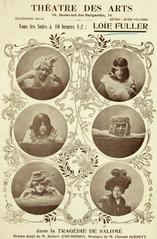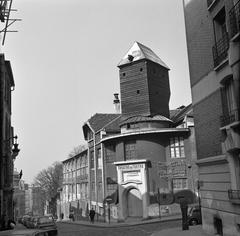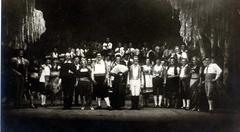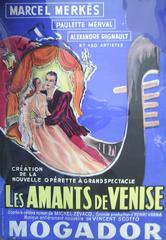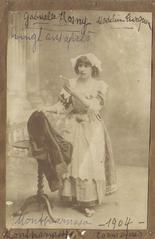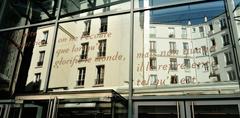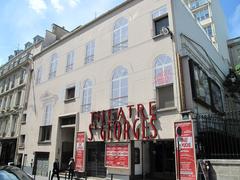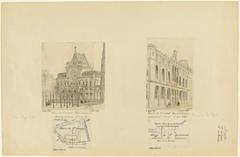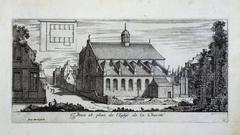Archives de Paris: Visiting Hours, Tickets, and Comprehensive Guide to Paris’s Historical Archives
Date: 03/07/2025
Introduction: The Role and Significance of the Archives de Paris
Located at 18 boulevard Sérurier in Paris’s 19th arrondissement, the Archives de Paris serve as an invaluable repository of the city’s history, preserving millions of documents, photographs, maps, and records from the late 18th century through the present. As a cornerstone among Paris’s historical sites, the Archives enable visitors, researchers, genealogists, students, and history enthusiasts to explore Paris’s evolution—from the French Revolution through the Napoleonic era, the transformation under Haussmann, the Paris Commune, and pivotal events of recent decades.
The Archives de Paris not only provide access to civil registration and census records crucial for genealogical research but also house judicial, administrative, military, and cultural archives, a specialized library, and a rich collection of audiovisual materials. Modern facilities ensure accessibility for all, with free entry, wheelchair access, and resources for sensory and cognitive impairments. A significant portion of collections is digitized, supporting both on-site and remote research. The Archives are conveniently situated near public transport and renowned cultural landmarks, making them a central hub for historical discovery and cultural engagement (Archives de Paris Official Website, FranceArchives).
Table of Contents
- Introduction
- Overview of the Collections
- Visiting the Archives de Paris: Hours, Tickets, and Accessibility
- Digital Access and Online Resources
- Cultural and Educational Programming
- Special Events and Temporary Exhibitions
- Nearby Attractions
- Visitor Experience and Tips
- Frequently Asked Questions (FAQs)
- Conclusion and Travel Tips
- References
Overview of the Collections
Civil Registration and Vital Records
The Archives de Paris are renowned for their comprehensive civil status registers, documenting births, marriages, and deaths since 1792. These records, invaluable for genealogists and historians, replaced church registers following the French Revolution, creating a continuous and accessible resource for tracing Parisian lineages and demographic changes (FranceArchives).
Census Records
Census collections, typically gathered every five years from the 19th century onward, provide detailed insights into household compositions, professions, and addresses, offering a window into Parisian social structures, migration, and urban growth.
Judicial and Notarial Archives
These collections include court records, litigation files, contracts, wills, and property transactions. They shed light on legal practices, economic relationships, and social customs throughout Parisian history.
Municipal and Administrative Records
Documents from the Paris City Council, urban planning files, and official correspondence illuminate how the city was governed, how policies were enacted, and how Paris responded to wars, public health crises, and urban transformations.
Maps, Plans, and Architectural Drawings
The Archives house an extensive array of cadastral maps, urban plans, and architectural blueprints, charting Paris’s physical and architectural evolution, especially since the 19th century (FranceArchives).
Photographic and Audiovisual Collections
Photographs and audiovisual materials capture the changing face of Paris—from its streets and monuments to everyday life—enriching the historical record with visual and oral history.
School and Educational Records
Registers and administrative files detail the development of education in Paris, reflecting shifts in social mobility and educational policy.
Military and Conscription Records
Conscription documents detail the service histories of Parisian men, offering personal and historical perspectives valuable for military and genealogical research.
Highlights and Notable Documents
- French Revolution and Napoleonic era records
- Documentation of the Paris Commune (1871)
- Collections from World Wars I and II
- Urban transformation files from Haussmann’s renovations
- Files documenting events such as the 1924 Olympic Games and the 2015 terrorist attacks
Visiting the Archives de Paris: Hours, Tickets, and Accessibility
Visiting Hours
- Reading Rooms:
- Monday: 13:30–17:30
- Tuesday–Friday: 9:30–17:30
- Every other Saturday: 9:30–17:00
- Document Requests:
- Must be placed by 16:20 (16:00 on Saturdays)
- Return documents by 17:20 (16:45 on Saturdays)
- Closed on Sundays and public holidays.
- Always check the official website for the latest updates or changes due to holidays or special events.
Tickets and Access
- Entry is free for all visitors aged 12 and above.
- Registration: Present a valid photo ID onsite to receive a free reader’s card, valid for the calendar year. This card is required for accessing the reading rooms and requesting documents.
- No advance tickets are required for general visits; reservations are recommended for group tours or workshops.
Accessibility
- The building is fully wheelchair accessible, with ramps, elevators, and adapted restrooms.
- Services for visitors with visual and hearing impairments include large print, Braille, tactile materials, induction loops, and subtitled video guides.
- Cognitive accessibility is supported with easy-to-read guides and staff trained to assist.
- Guide dogs and assistance animals are welcome.
- For detailed accessibility information, consult accessible.net and France.fr – Accessible Paris.
Guided Tours and Workshops
- Regularly scheduled free guided tours and educational workshops are available, covering the archives’ collections and historical themes.
- Temporary exhibitions and conferences are held throughout the year (Archives de Paris Conferences and Events).
- For schedules and booking, visit the official website.
Location and Transportation
- Address: 18 boulevard Sérurier, 75019 Paris
- Metro: Porte des Lilas (Lines 11 and 3bis)
- Tram: Porte des Lilas (T3b)
- Bus: Lines 20, 48, 61, 64, 96, 105, 115, 129, 170, 249
- Nearby attractions: Parc de la Villette, Cité des Sciences et de l’Industrie, Philharmonie de Paris, Parc des Buttes-Chaumont
- Parking is limited; public transportation is recommended.
Digital Access and Online Resources
A substantial part of the Archives de Paris collections is digitized and accessible via their official online portal. Collections include civil registration records, census data, judicial files, maps, and more. Online finding aids and inventories facilitate remote research and planning for onsite visits.
Cultural and Educational Programming
Conferences and Lecture Series
- Comité d’Histoire de la Ville de Paris (CHVP) Conferences: Free Thursday sessions, open to all and exploring Parisian history through archival sources. No registration required; seating is limited.
- Genealogical Conferences: In partnership with La France Généalogique – CEGF, these sessions guide participants through family history research. Registration is required (Archives de Paris Conferences and Events).
- Thematic Seminars: Jointly organized with institutions like CNRS/Université Paris 1, focusing on cultural and territorial history.
Highlight: Artisanat et métiers d’art à Paris
A series examining Paris’s craftsmanship and artistic trades in the 19th and 20th centuries, featuring expert-led discussions and archival insights.
Educational Resources and Research Support
- Specialized Library: Over 37,000 volumes and 1,000 serials supporting research in Parisian history.
- Digitized Archives: Extensive online resources and finding aids.
- Assistance: Staff provide guidance on using the collections and research techniques.
- Academic Partnerships: Collaborations with local and international universities enhance educational programming.
Public Engagement and Digital Content
- Selected conferences and seminars are available on the Archives de Paris YouTube channel.
Special Events and Temporary Exhibitions
- The Archives regularly host exhibitions and commemorations highlighting unique materials and anniversaries.
- For updates, check the official website.
Visitor Experience and Practical Tips
What to Expect
- Atmosphere: A modern, peaceful research environment welcoming to all.
- Facilities: Spacious reading rooms, lockers for personal items, accessible restrooms, and free Wi-Fi.
- Rules: Use only pencils, laptops, and notepads in reading rooms; photography is allowed without flash for personal research; bags and coats must be stored in lockers.
- Languages: Staff speak French; some English support is available.
- Etiquette: Silence is expected in research areas; food, drinks, and smoking are prohibited.
Accessibility Summary
- Step-free access, elevators, adapted toilets, and reserved parking for people with disabilities.
- Sensory and cognitive supports available.
- Companion entry and assistance animals welcome.
Safety and Security
- Standard security checks are conducted; the area is generally safe, but usual vigilance is advised.
Nearby Amenities and Attractions
- Numerous cafés, restaurants, and green spaces in the 19th arrondissement.
- Close proximity to Parc des Buttes-Chaumont, Philharmonie de Paris, and Parc de la Villette.
Frequently Asked Questions (FAQs)
Q: Are Archives de Paris tickets required for entry?
A: No, entry is free. Tickets are only necessary for some group tours or special events.
Q: What are the Archives de Paris visiting hours?
A: Monday: 13:30–17:30; Tuesday–Friday: 9:30–17:30; every other Saturday: 9:30–17:00. Always check the official website for updates.
Q: Is the Archives de Paris wheelchair accessible?
A: Yes, with ramps, elevators, adapted toilets, and staff support.
Q: Can I take photos inside?
A: Non-flash photography is generally allowed for personal research, with some restrictions for specific materials.
Q: Are guided tours or special events available?
A: Yes, regular free guided tours, conferences, and exhibitions are held. Check the official website for schedules.
Q: How do I prepare for a research visit?
A: Consult the online catalog, bring valid ID, and plan document requests in advance.
Conclusion and Travel Tips
The Archives de Paris encapsulate the city’s historical depth, offering free and accessible entry to a vast collection of documents and artifacts that narrate Paris’s evolution. With comprehensive accessibility features, expert staff, digitized collections, and an engaging calendar of events, the Archives are a must-visit destination for anyone interested in Paris’s heritage.
For up-to-date information on visiting hours, cultural programming, and digital resources, consult the official Archives de Paris website. Download the Audiala app for curated guides and archival insights, and follow the Archives on social media for news and highlights.
References
- Archives de Paris Official Website
- FranceArchives, Service of the French National Archives
- Archives de Paris Conferences and Events
- Wikipedia: Archives de Paris
- France.fr – Accessible Paris
